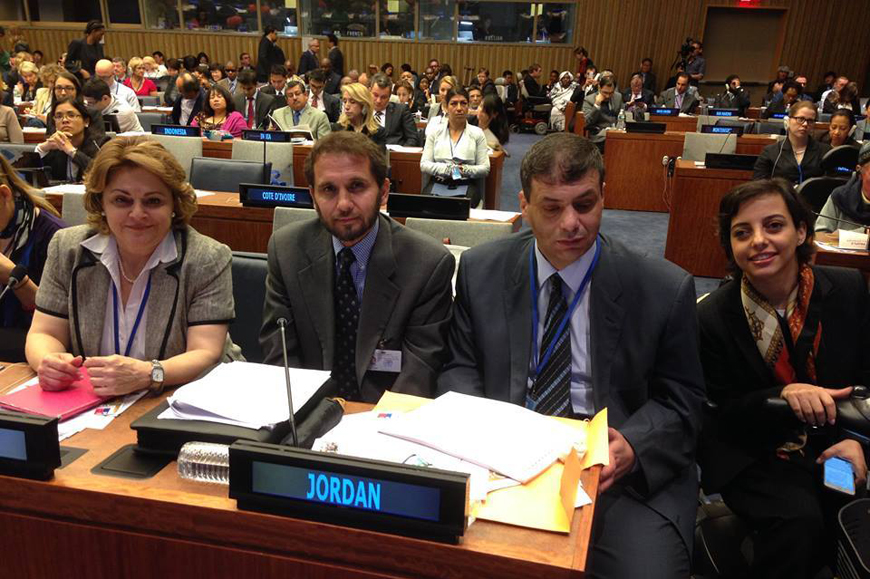AMMAN — Jordan last week joined over 100 countries taking part in the Eighth Session of the UN Conference of States Parties to the Convention on the Rights of Persons with Disabilities (CRPD), at UN Headquarters in New York.
Participants reviewed progress, assessed their countries’ challenges and deliberated the way forward in terms of implementing the provisions of the convention, according to a statement released by the Higher Council for Affairs of Persons with Disabilities (HCD).
Speaking at the conference, HH Prince Mired, HCD president, underscored the need to “to make disability more visible; to transform the experiences of the disability community, in all its diversity, into available information, practices and know-how”.
He noted that the Post-2015 Development Agenda, with its Sustainable Development Goals (SDGs), which countries will be adopting at the Global Summit this September, “provides us with the opportunity to do so”.
While commending the work done by the UN Opening Working Group on the SDGs that developed the draft goals, Prince Mired highlighted the fact that the addition of “an explicitly inclusive disability-focused goal… [with] disability… mainstreamed across the board in a more visible and obvious manner beyond a dependent and disaggregated variable” would render the draft goals more representative of the rights, issues and needs of the global disability community.
He warned that “the more vague or general the goals are the more chance that people with disabilities will be marginalised or that the goals will be misinterpreted or misunderstood,” the statement said.
“It remains incumbent upon us to elevate the issue of disability at every and any occasion. It needs to be made abundantly clear and without any equivocation what the intended goals mean for people with disabilities,” added the prince, who headed the Jordanian delegation.
For without such clarity, he noted, “the fear that we all have that implementation will fall short may in fact become a reality,” calling for not leaving “anything to chance” and “to get it right this time”, since people with disabilities “in most countries around the world have been waiting for a very long time to see tangible change”.
Prince Mired ended his address with a plea to “begin to collectively reflect upon the true scope and magnitude of the issues, programmes and development initiatives pertaining to children, women and men with disabilities and their organisations, including those in poverty and war zones”, reinforcing the notion that not doing so ultimately leads to “diminishing the voices of the constituents” to whom the states parties answer.
The four-day event included roundtable discussions on the CRPD vis-à-vis the issue of mainstreaming disability in the post-2015 agenda, as well as an informal panel on addressing the vulnerability and exclusion of persons with disabilities; the situation of women and girls; children’s right to education; disasters and humanitarian crises, the statement said.
HCD Secretary General Amal Nahhas, Senator Muhannad Al Azzeh and Adviser to HCD President Alia Zureikat were part of the Jordanian delegation, which also participated in a number of side events.
The delegation also held bilateral meetings with several donor countries to discuss areas of mutual interest and cooperation in the field of disability and development.
The ninth session of the Conference of States Parties to the CRPD is scheduled for June 2016.
